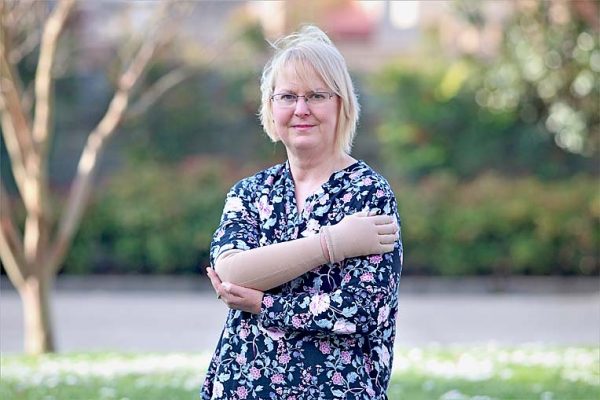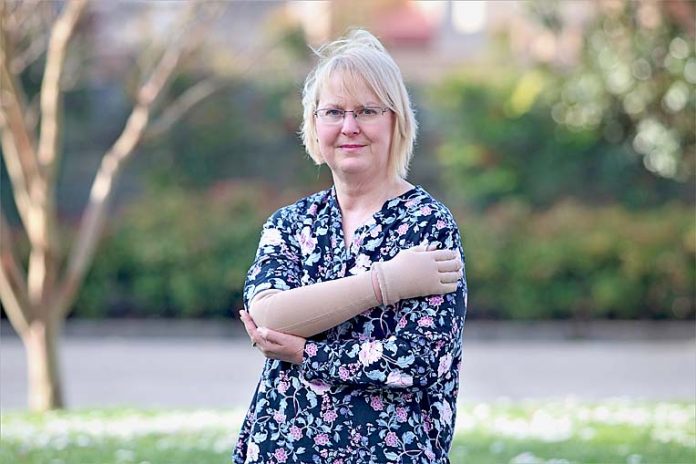
A SIMPLE “why not us?” from a Mount Gambier woman has delivered a life-altering win for lymphoedema patients across South Australia.
Dulcie Hoggan approached Member for Mount Gambier Troy Bell earlier this year asking why South Australia was the only state in the nation which did not offer a lymphoedema compression garment subsidy.
A three-part motion spearheaded by Mr Bell was given the green light in State Parliament yesterday, which will deliver a subsidy scheme for the state.
An ecstatic Ms Hoggan said she was overwhelmed by the landmark decision, which would ease the financial burden of her chronic condition.
Secondary lymphoedema is caused by an accumulation of lymphatic fluid and develops in parts of the body after treatment for melanoma, prostate, breast and gynaecological cancers.
The condition is managed using compression garments, which have to be professionally fitted and depending on the severity of the condition, can cost between $200 and $3500 annually.
“I just asked Troy why all the other states had a pass which could be used and he said it seemed no-one had physically come to ask parliament or a parliamentarian,” Ms Hoggan said.
“He said by me asking, he would take it forward.
“There are people everywhere that need to wear them for their safety and comfort and to keep their illness under control.
“We are all going to win by this decision.”
In his speech yesterday, Mr Bell referred to the experiences of Ms Hoggan and fellow Mount Gambier woman Pam Moulden.
Both women developed lymphoedema in their arms following treatment for breast cancer.
“In order for Dulcie and Pam to live a comfortable life, they rely on daytime and night-time compression garments and the life span of these is around six months,” Mr Bell said.
“It is important to recognise this is a lifelong condition – there is no cure for lymphoedema.
“Over a lifetime, the cost of these garments can add up to thousands and thousands of dollars – a huge financial burden upon survivors of cancer.”
Mr Bell said introduction of the subsidy had been “swept under the carpet for too long”, adding the scheme could potentially save the state’s health system in the long term.
“If lymphoedema goes untreated, it can cause a serious health condition known as cellulitis, often requiring long periods of hospitalisation,” he said.
“Making these garments affordable to people at the beginning of their diagnosis means more people will access them, decreasing the number of complications.
“It would be far more cost efficient for the State Government to subsidise compression garments and ongoing therapy, rather than having to support patients during long hospital stays.”








